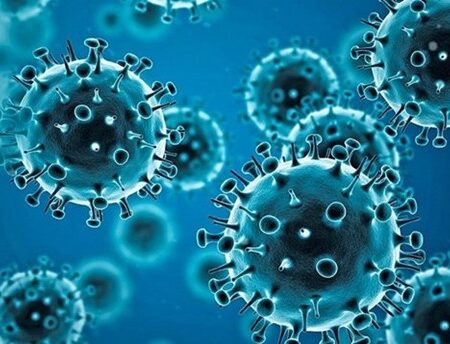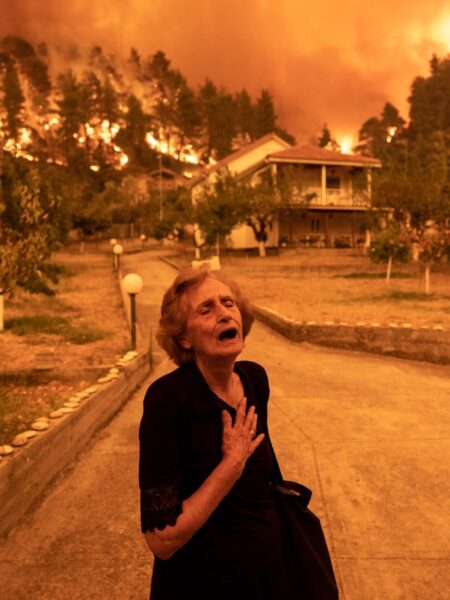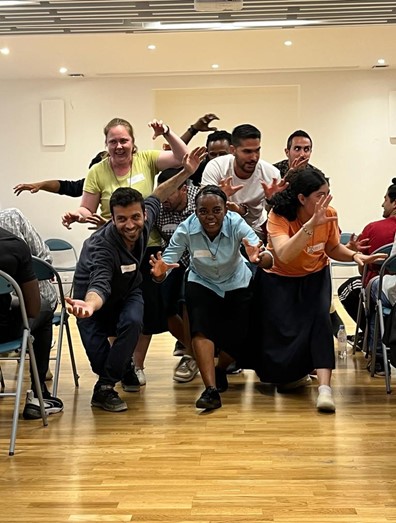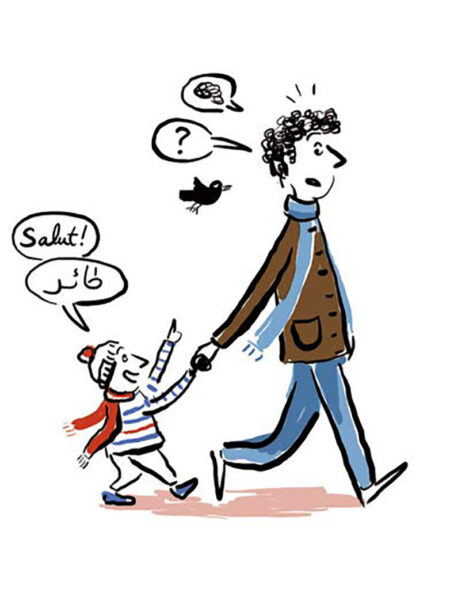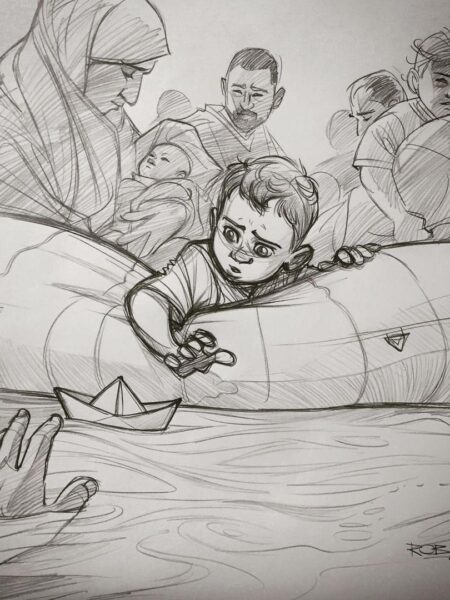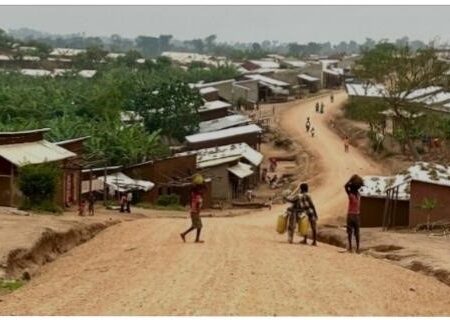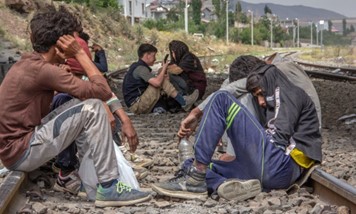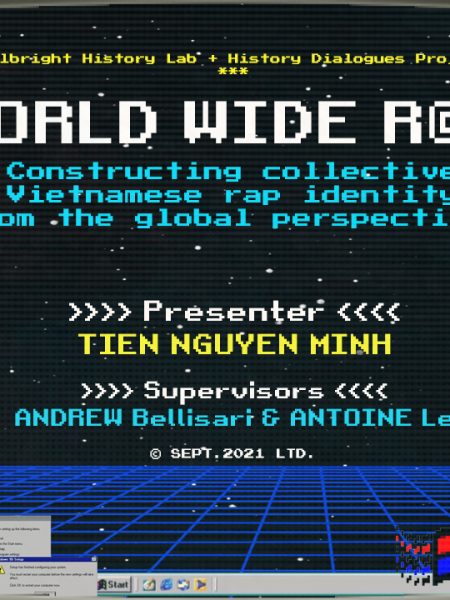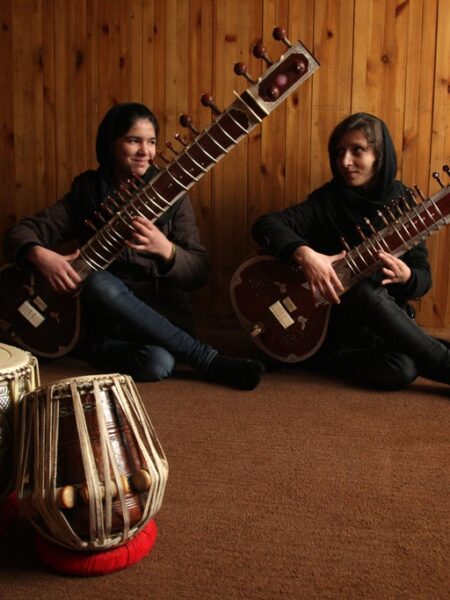Introduction
There are few people in the world that do not know about devastating nuclear catastrophes that happened in human history. Fukushima nuclear disaster, Kyshtym disaster, and, of course, disaster in Chernobyl. The nuclear explosion in Chernobyl happened in April 26, 1986. This catastrophe took the lives of 50 people, who died after a direct contact with radiation, during rescue missions, and another 4,000 people died from radiation-related health problems.[1] As if that was not enough already, two decades after the accident, the explosion at Chernobyl, or mostly its consequences, took up to 200.000 lives.[2] The reactor was completely destroyed, and an enormous number of radioactive substances were released into the environment. This ‘accident’ is seen as the largest and the most devastating of its kind in the history of nuclear energy, both in terms of people who were killed, and in terms of people who were affected by its consequences. 
Belarus was the most affected state (23.5% of its territory and 35% of its population). It had three times more contaminated territory and five times more affected people than Ukraine, the country where the power plant was located.[3] Analysis of radioactive contamination shows, that the territory of Belarus was affected by 70% of all radioactive contamination. It is not hard to imagine that this contamination did not go unnoticed, as many Belarusian people were suffering and still suffer from its outcomes, like thyroid cancer.
In 1991-1992, the Supreme Council of the Republic of Belarus (Верховный Совет Республики Беларусь) issued several new laws, which aimed at creating a system of social support for people, who have suffered from Chernobyl accident, and ensure the implementation of the State Chernobyl program.[4] Nevertheless, despite all those measures taken, the number of people with serious diseases in the territory of Belarus contaminated with radionuclides was increasing. These people needed treatment by highly qualified specialists, which costed considerable sums. The most affected group of people were children, as more than 30 children and teenagers with thyroid cancer are operated on in Belarus every year.[5]
The help of international organizations was essential for Belarusian people. After the collapse of the Soviet Union, economic problems followed. The number of people living below the poverty line parity of US$4.30 dollars per day in Belarus increased from 3% in 1987 to 69% in 1996.[6] This has had implications for the organization of recuperative trips for children abroad, which in this text will be referred as “Chernobyl vacations” or “Чернобыльские путевки”, so Belarusians called them. Based on the interviews conducted for this paper, it can be stated, that children have been going abroad, not exclusively for health reasons to recover from Chernobyl, but also to alleviate their economic situation in post-communist Belarus. As one participant recalled on a blog called CityDog in 2016 – “When I was leaving Italy, I was also crying. I wanted to stay there – you are getting used to it quickly. Of course, everything seemed miserable after Italy, but it was so. When you see well-dressed, good smelling people, and then you come here where there are still the 90s”.[7]
For more than thirty years, people from all over the world have been helping Belarusians overcome the consequences of the Chernobyl disaster. Every year little Belarusians travel for health improvement. The duration of these “health-trips”, and the time of the year when children travel, differs from one charity organization to another. During these vacations, children usually stay in host families, and sometimes in special camps. What is interesting for our research – is how host families and Belarusian children managed to get close, despite many obstacles, like language barriers, different mentalities, anxiety and many others. Over the years, the peoples of Belarus, Italy, Spain, England, Germany and many other countries managed to form meaningful connections and become not just friends for each other, but family. Many people who went on these vacations and stayed in host families still keep in touch with each other, even after many years.
Building Connections
For many years now, Belarus is still mostly an unknown place for the West. Sometimes people assume that it is a part of Russia, sometimes they just prefer to stay silent to avoid admitting that they might not even know where this country is located. Recent years were especially hard for this beautiful country – embassies of different countries were shut down there, many sanctions and restrictive measures were applied for Belarus and its people. As traveling and forming international connections for Belarusians became rather hard with all those factors, Chernobyl vacations remain an important “bridge” between people, as connections that they once formed many years ago, continue to live and thrive even now.

This paper looks at one consequence of the nuclear catastrophe: recuperative trips for affected Children and Youth from Belarus to countries of Western Europe. The research will mainly focus on the experiences of the Belarusians who were sent on these trips when they were very young. So many children from the post-soviet Belarus were sent abroad, all alone, to the developed capitalist countries to live with a family of complete strangers — all these factors influenced the development of the child’s personality and outlooks on life. How can one develop their personality and character living in one country during winter and in another country during summer? Is there really that much of an impact, that a completely different culture can have on a child or a teenager? These questions, as well as pure curiosity about people’s stories, were the inspiration for this research.
Eligibility
Many families would do everything to send their child abroad to receive medical help, and just see the world outside of Belarus in general. As it was written above, economic situation in Belarus was quite unstable, and not many people could afford the luxury of traveling. This was not a matter of finances, but also a matter of bureaucracy. Despite the fact, that Belarus is located in Europe, one might find it challenging to get into or get out of this wonderful country. Since Belarus is not the part of the European Union, therefore most of the time its citizens would need a visa to go mostly everywhere. The situation has become more problematic in the recent years, as there are almost no direct flights from Belarus to the countries of the EU. So how was a child’s eligibility to participate in the “healing vacations” determined?
My mom was a single mom at that time. When she found out about this program, she decided to apply and try to send me on of these vacations. I matched all the requirements of this program: dysfunctional family and radioactively contaminated city.[8]
Being a native to the radioactively contaminated city was an obvious requirement, as people there were the ones suffering the most. However, the government as well as the charity organizations usually prioritized people with social problems, like being from a dysfunctional family. That was a way to help those, who really needed it, but could not have access to it for various reasons. Noteworthy to say, that these requirements were not always met…
I went to the Chernobyl Program as a favour (-po blatu). Well, Rečyca is in the Gomel region, thus a Chernobyl affected region, so technically I didn’t go on this vacation po blatu. […] Along with the groups of children, that went on these vacations, there were also teachers accompanying them. And my mother’s friend was one of those teachers. She proposed to bring me as well, even though I wasn’t an orphan and my family was pretty much normal. And for 2 years I was pretending to be from the poor family.[9]
In Russian language, blat (Russian: блат) denotes a form of corruption, a way of getting things done through personal contacts, using privileged connections, pulling strings and exchanging favors. Is the desire to help your friends is as bad as we picture it? Did it prevent other children from getting the help they need? Hopefully not, but it is an ongoing phenomenon in Belarus, when children are sent to these vacation solely “po blatu”, as they might not even have any health-related problems, let alone family issues. They usually just have powerful parents with powerful friends.
Foreign Generosity and Willingness to Help
An ongoing stereotype, that Belarus is a poor country unfortunately did not come far from the brutal reality. Belarus, with a GNI per capita of $6,330, finds itself among the poorest countries in Europe.[10] Like it was stated above, after the collapse of the USSR a huge economic crisis followed. The Soviet Union lived as a single economic organism – all its constituent republics continuously exchanged raw materials, products and goods. After this enormous system came apart, many republics found themselves confronted with a the deficit of many products and inflation. To avoid civil unrest, for the first time of its existence Belarus introduces coupons for food and some durable goods in 1991.[11] Although, the participants of the interviews were not born in the USSR, nor faced food coupons, they still had experience of food shortages in stores or lack of some consumer goods.
[…]Their generosity. And kindness. They knew that you were from Belarus, and they were trying their best to give you everything they can. For example, even now they are buying me plane tickets.
(Dasha is about to visit her host-family this summer)[12]
Good things are easy to get used to. After spending some time in a country, where deficit of products was not even a thing, it was hard to come back to Belarus. When participants of these vacations grew up, many of them emigrated. But many stayed, and tried to bring the “consumer revolution” to their motherland. Nowadays, even despite all the sanctions the country have, one could find there quite a number of products that were unfamiliar for Belarusians in the early 2000s.
[…] The food there was so delicious… When I came back to Belarus I was really chubby. Because they (host-family) were giving me a lot of vitamins, and, well, food. And my parents were flabbergasted, when I came back so chubby. […] My babushka was almost crying while looking at me. I was kind of overweight.[13]
What came as an amusing surprise during the interviews was that 3 out of 4 participants mentioned their host-family’s desire to feed them as much as they can. The possible explanation here could be, that foreigners thought that deficit of products in Belarus is worse than they think. Providing food in many cultures signifies hosts’ willingness to show that their guests would receive a warm welcome. Belarusians were not starving, of course. However, many participants found their host-parents wholehearted desire to feed them and show them different kinds of unusual snacks rather adorable. None of them complained.
They (Italian host-parents) try their best to feed you. I was small and skinny, and they knew that because of the radioactive contamination from Chernobyl our (Belarusian) food lacked a lot of vitamins and vital elements[14]
Providing and eating food helped create a less formal atmosphere, which then created an opportunity for people to connect with each other. Having in mind, how stressful it was for a child to come to a foreign country, barely knowing the language, food could also serve as an icebreaker in the early steps of forming a connection. Food gives people something to talk about, and “food topics” are usually one of the first things we learn, when we start studying a new language.
[…] When my colleague at the office found out that I’m going to host a girl from Belarus, on the next day she came to work with lots of clothes for girls, and a lot of toys, too.[15]
Another way to “soften” a stressful situation for a child could be gift giving. Doing something for others has the ability to elevate one’s mood. Not only that, both giving and receiving gratitude have a tangible impact on our physical, emotional and social health.[16] Host-families most likely acted based on the stereotypes that they had about post-soviet Belarus, but their intentions were most probably pure.
I remember, that before going to Holland we had to fill some kind of questionnaire, where we had to specify our interests and hobbies. I wrote down that I really love reading. And when I arrived to my host-family, they instantly took me to the library, so that I could choose some books to read. They also gifted me a lot of board games.[17]
Rose-colored glasses
So far, it may seem that these vacations were almost perfect – family, ready to accept a stranger child no matter what, lots of gifts and delicious food. That should not raise questions, because this is a normal phenomenon, each of us has a feeling of compassion for someone else’s misfortune. Pity, like mercy, are normal human feelings.
Probably the most unusual thing for me was their (host-family’s) desire to help complete strangers. Their willingness for a whole month, sometimes even more, to host a basically random child at home, create the most comfortable conditions for them, come up with unusual leisure time and activities.[18]
Yet it would be not right to ignore possible problems or difficulties that may occur during these vacations. Not knowing the language of the country, where children were going to stay for a month or more was, quite naturally, unpleasant. Having to travel for two or more days in order to reach the destination is another problematic thing. But could there be any other problems?
You never knew in what host family you’re going to end up. There were wonderful families, yes. But there were also the ones, who were doing it for the money, because they participated in this charity program. […] Some of my classmates told me, that their families weren’t really paying much attention to them.[19]
When there are so many charity organizations, that make it their purpose to help people affected by Chernobyl, it is predictable that some individuals may be seeking other goals, when applying as volunteers. The desire for profit, as one of the types of pleasure, was a fairly strong motivating factor for some. It influences many of our decisions and actions, determines the life goals and plans that we are going to have, affects our satisfaction with life. A material benefit, like money in our case, which is physically tangible, may look more attractive than an intangible or relationship-related benefit, which is simply harder to see and understand.
There were sort of weird moments as well. Before (before Dasha started participating in the Chernobyl Program), it was possible to bring your host-child abroad. Like have a little trip from Italy to, let’s say, Germany. But it is forbidden now. Because one host-family just basically stole their host-child, and they (child) never came back to Belarus. After it, there were some new restrictions, obviously.[20]
We can only wonder might have encouraged a particular host-family to “steal” a child they were supposed to help. This will remain a mystery, as there is no such data or any record of this case, it might as well just be fiction to scare kids and make sure that they will come back to their motherland. But the thought of something like this happening naturally worrying, many families who were about to send their child abroad for a “healing vacation”.
Life changing vacations
In every individual, case the influence of the healing vacation on the child’s trajectory different. Some, like it was mentioned before, found themselves emigrating from Belarus to the countries where they used to be “Chernobyl child”. Some acquire particular skills, which they learned from their childhood in foreign countries. As one of the interviewees mentioned, these vacations were not the same as tourism, since they entailed children actually live in the foreign country, within a native family, they see the real country and how everything works.
We always said to her, that it is necessary to study. That if she wants a good life, she needs to study a lot. Liza, study-study-study. […] We are very happy, when we look at her now. For my husband and I — it’s a success. It’s all Liza. Yes, we wanted to help her, but she was the one listening and accepting our help. She trusted us.[21]
Life in another country involuntarily causes people to think about the cultural values of the area in which they are located, the features of the people inhabiting it, moral norms and everything that distinguishes their native country from the one where they are now. Some people believe that particular character traits change due to the collision with cultural differences. At first, this creates discomfort, but gradually people stop being nervous and begin to perceive the new environment more favorably.
Everything changed in my life after these vacations. If not for them (host-parents), I wouldn’t be where I am now, that’s for sure. I wouldn’t learn so many languages, I wouldn’t emigrate to another country. I saw the quality of life outside of Belarus and I realized, that I had to break free as well.[22]
One might argue, that Chernobyl vacations help its participants to broaden their horizons, start thinking without limits, accept different people as they are, and most importantly, realize who you are and what you want. During the research, not only through conducting interviews, but also through analyzing similar website articles and journalistic research, it became clear that Chernobyl programs influenced a lot of people to study foreign languages. Liza, that was interviewed for this research, for example, speaks 5 languages, and she stated that it was precisely the experience of these vacations, that inspired her to learn so many.
Conclusion
I went to these vacations 8 or 9 times. I grew up with that family. When I was not with them in Italy, we used to talk through Skype all the time. They were always sending me gifts and postcards, even to my parents. […][23]
It is truly amusing how a catastrophe of such scale can not only bring destruction and emptiness, but also bring so many people closer to each other. Despite borders, despite speaking different languages, despite being from completely different countries. 3 out of 4 participants of the interview still remain close with their host-families. Liza was interviewed with her host-family, as they were visiting her in Warsaw, Dasha is going to visit her host-family in the end of the July this year.

One of the most famous forms of humanitarian aid for children from territories contaminated with radiation from the Chernobyl accident were these health vacations abroad. Thanks to them, about 500,000 children left Belarus for health improvement at the border over the past thirty years. Thanks to these vacations, little Belarusians were given a possibility to breathe clean air, eat delicious and non-contaminated food, see the sea, get to know another cultures, learn foreign languages.
Chernobyl was a disaster, that took too many lives, that left many people disabled and not being able to live a normal, ordinary life. But at the same time this catastrophe gave birth to so many new families. International families, that may not be bonded by blood, but whose connection and love for each other has grown strong over the years.
Bibliography
- ZOOM Interviews by the Author with Dasha, Liza, Anya, Ksenia and Ilde.
- Zhukova, Ekatherina. “Foreign Aid and Identity after the Chernobyl Nuclear Disaster.” JSTOR, December 1, 2017. https://www.jstor.org/stable/48590276
- Trackers, Courtney. “Poorest Countries in Europe 2023.” Wisevoter, May 16, 2023. https://wisevoter.com/country-rankings/poorest-countries-in-europe/#:~:text=Belarus%2C%20with%20a%20GNI%20per,GDP%20stands%20at%2060%20billion
- “Giving Thanks Can Make You Happier.” Harvard Health, August 14, 2021. https://www.health.harvard.edu/healthbeat/giving-thanks-can-make-you-happier
- “Europe | Greenpeace Rejects Chernobyl Toll.” BBC News, April 18, 2006. http://news.bbc.co.uk/2/hi/europe/4917526.stm
- “Chernobyl: The True Scale of the Accident | UN Press.” United Nations, September 6, 2005. https://press.un.org/en/2005/dev2539.doc.htm
- “100 Лет БССР: Распад СССР и Образование Республики Беларусь (Досье БЕЛТА).” by, December 10, 2018. https://www.belarus.by/ru/press-center/press-release/100-let-bssr-raspad-sssr-i-obrazovanie-respubliki-belarus-dosje-belta_i_0000091272.html
- CityDog.io. “Дети, Ездившие За Рубеж По ‘Чернобыльским’ Программам: ‘Конечно, После Италии Все Казалось Убогим, Но Ведь Так и Было.’” io, April 26, 2016. https://citydog.io/post/chernobylkids/
- “В Беларуси Ежегодно Оперируют Более 30 Детей и Подростков с Раком Щитовидной Железы.” Белорусское телеграфное агентство, April 4, 2019. https://www.belta.by/society/view/v-belarusi-ezhegodno-operirujut-bolee-30-detej-i-podrostkov-po-povodu-raka-schitovidnoj-zhelezy-342698-2019/
[1]“Chernobyl: The True Scale of the Accident | UN Press,” United Nations, September 6, 2005, https://press.un.org/en/2005/dev2539.doc.htm
[2]“Europe | Greenpeace Rejects Chernobyl Toll,” BBC News, April 18, 2006, http://news.bbc.co.uk/2/hi/europe/4917526.stm
[3] Ekatherina Zhukova, “Foreign Aid and Identity after the Chernobyl Nuclear Disaster,” JSTOR, December 1, 2017, https://www.jstor.org/stable/48590276
[4] Меркіс, Яўген. «Авария на Чернобыльской АЭС и её последствия для Гомеля». Краязнаўчы сайт Гомеля і Гомельшчыны, 27 ноябрь 2018 г., http://nashkraj.info/avariya-na-chernobylskoj-aes-i-eyo-posledstviya-dlya-gomelya/
[5] “В Беларуси Ежегодно Оперируют Более 30 Детей и Подростков с Раком Щитовидной Железы,” Белорусское телеграфное агентство, April 4, 2019, https://www.belta.by/society/view/v-belarusi-ezhegodno-operirujut-bolee-30-detej-i-podrostkov-po-povodu-raka-schitovidnoj-zhelezy-342698-2019/
[6] Zhukova, «Private Humanitarian Responses to Disaster Vulnerabilities”.
[7] Pavel, interviewed by the CityDog journalists, Minsk, Belarus, April 2016. https://citydog.io/post/chernobylkids/
[8] Liza, ZOOM Interview by the author, Rome, Italy, 22 June 2023.
[9] Dasha, ZOOM Interview by the author, Rome, Italy, 17 June 2023.
[10] Courtney Trackers, “Poorest Countries in Europe 2023,” Wisevoter, May 16, 2023, https://wisevoter.com/country-rankings/poorest-countries-in-europe/#:~:text=Belarus%2C%20with%20a%20GNI%20per,GDP%20stands%20at%2060%20billion
[11] “100 Лет БССР: Распад СССР и Образование Республики Беларусь (Досье БЕЛТА),” Belarus.by, December 10, 2018, https://www.belarus.by/ru/press-center/press-release/100-let-bssr-raspad-sssr-i-obrazovanie-respubliki-belarus-dosje-belta_i_0000091272.html
[12] Dasha, ZOOM Interview by the author, Rome, Italy, 17 June 2023.
[13] Anya, ZOOM Interview by the author, Rome, Italy, 25 June 2023.
[14] Dasha, ZOOM Interview by the author, Rome, Italy, 17 June 2023.
[15] Ilde, ZOOM Interview by the author, Rome, Italy, 22 June 2023.
[16] “Giving Thanks Can Make You Happier,” Harvard Health, August 14, 2021, https://www.health.harvard.edu/healthbeat/giving-thanks-can-make-you-happier
[17] Anya, ZOOM Interview by the author, Rome, Italy, 25 June 2023.
[18] Kseniya, ZOOM Interview by the author, Rome, Italy, 19 June 2023.
[19] Anya, ZOOM Interview by the author, Rome, Italy, 25 June 2023.
[20] Dasha, ZOOM Interview by the author, Rome, Italy, 17 June 2023.
[21] Ilde, ZOOM Interview by the author, Rome, Italy, 22 June 2023.
[22] Liza, ZOOM Interview by the author, Rome, Italy, 22 June 2023.
[23] Dasha, ZOOM Interview by the author, Rome, Italy, 17 June 2023.
